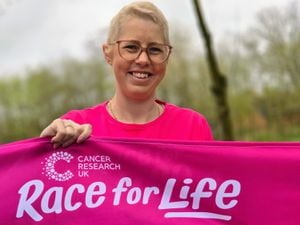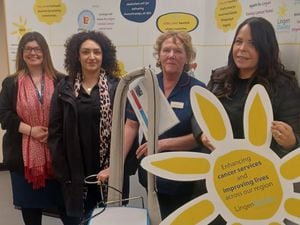Shropshire hospitals trust backed over Down's syndrome data complaint
The data watchdog has backed Shropshire’s main hospital trust over its decision to withhold information about Down's syndrome births.

Shrewsbury and Telford Hospital NHS Trust received a Freedom of Information request asking for the number of newborns diagnosed with the genetic condition each year from 2010 to 2017.
The trust instead provided a total encompassing the entire period, arguing that the total for individual years were so small that disclosing them would effectively identify the families.
The requester complained to Information Commissioner Elizabeth Denham in May. A decision note published by her office this month backed SaTH’s decision.
The document says the original request, submitted in February, read: “Please can you tell me how many total live births there were in 2017 and how many births with Down's syndrome there were each year in 2010-2017 inclusive.”
The trust provided the 2017 overall birth count and disclosed that there were nine babies diagnosed with the genetic condition in the total eight-year period. The requester queried this response and requested an internal review, but the trust still withheld totals for the individual years.
SaTH’s statement, provided at the conclusion of the internal review in May, said: “This was a matter that had been considered the best possible practice, providing a service of openness and transparency while protecting the anonymity of our patients.”
Identify
The requester complained to the Information Commissioner’s Office the following day.
The ICO report explains Section 40 of the 2000 FOI Act allows public bodies to withhold information if it is personal data of anyone other than the requester him or herself and where disclosing it would breach the General Data Protection Regulation.
“The information in this case doesn’t directly identify individuals,” it says
“However, because the name of an individual is not known, it does not mean that an individual cannot be identified.”
The report quotes guidance stating that even anonymised information can be considered personal “if there is a reasonable chance that those who may receive the data will be able to identify particular individuals”.
The Commissioner, the report says, “accepts the withheld data may link with other information or knowledge, such as information from the education sector, media or social media, to make identification possible”.
Rejecting the complaint the report adds: “Whilst the Commissioner has agreed to issue a decision note on this occasion, she notes that she considers it appropriate for complaints to her to be resolved informally where possible.
“She therefore strongly encourages a degree of co-operation and, where relevant, compromise, on the part of all parties.”





